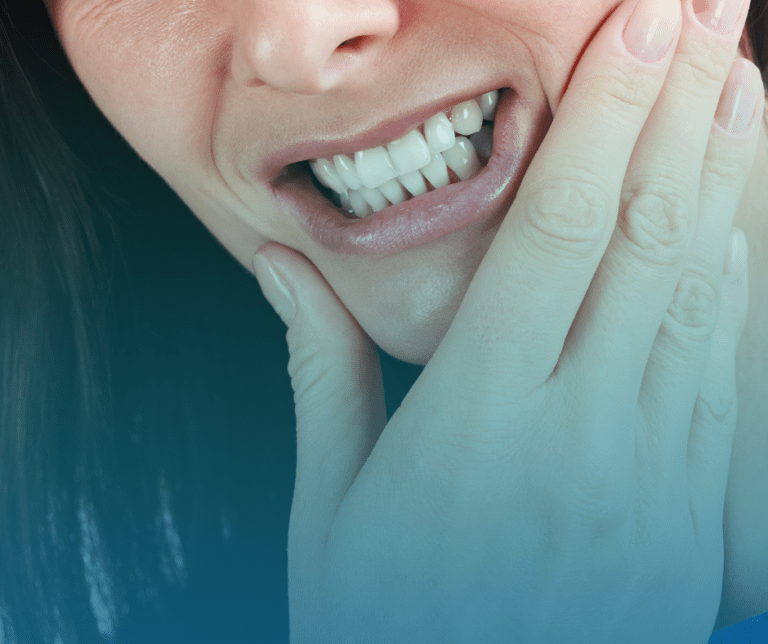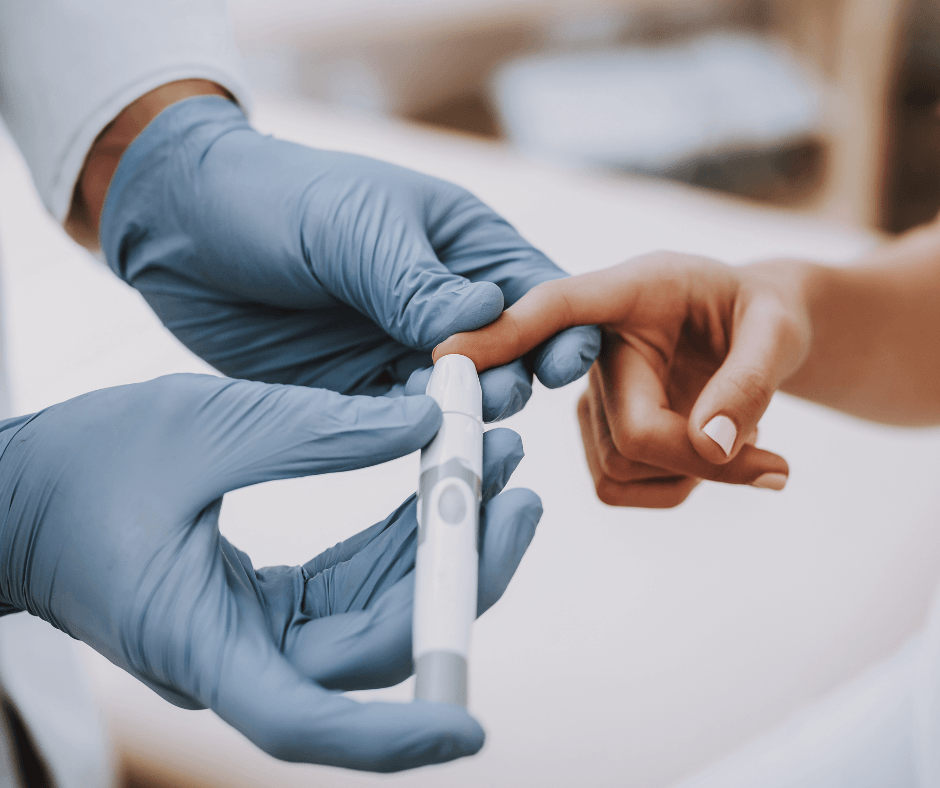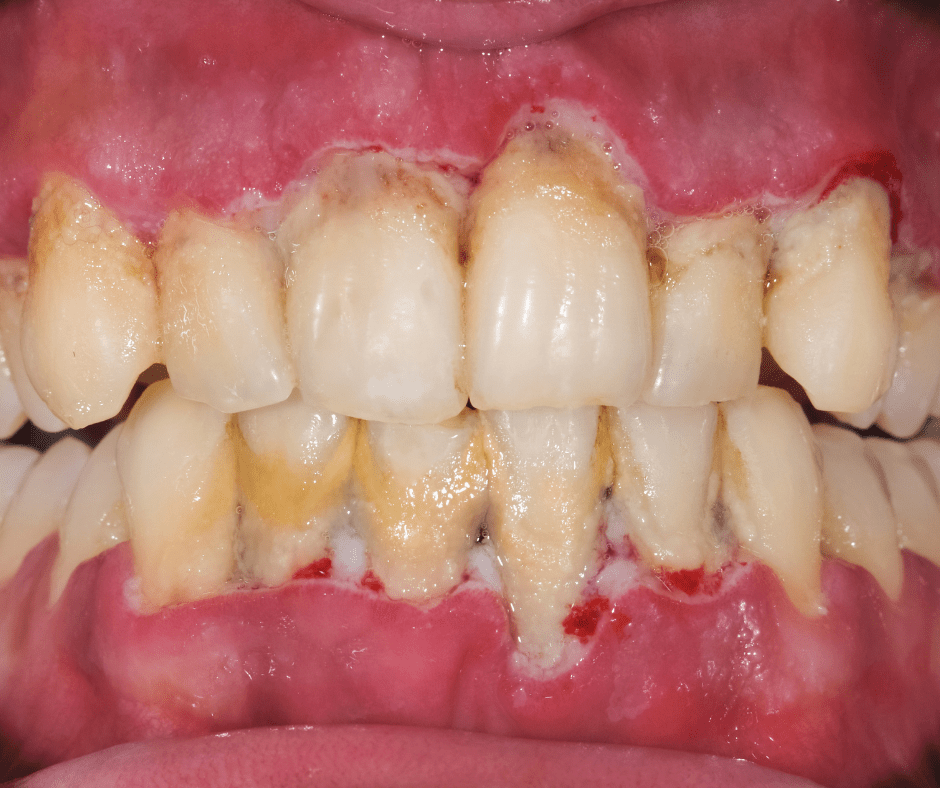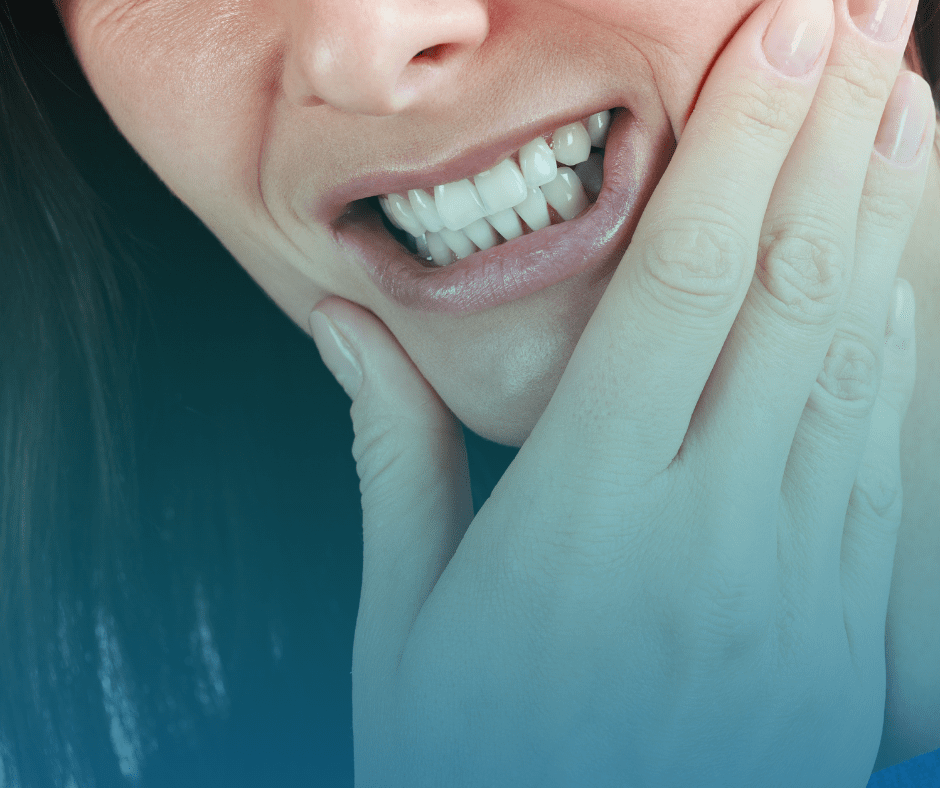Did you know that nearly 50% of adults in the US over the age of 30 are impacted by periodontal disease? The percentage jumps to 70% in adults over the age of 65. When we take a look at these numbers, it’s obvious that periodontal disease. Ranging from slight to severe, is very prevalent in our society.

So, what are some of the factors that increase our risk for developing periodontal disease? And what risks can we mitigate? There are many risk factors that impact whether or not someone will develop periodontal disease over their lifetime. In this post we will be looking at some of the more common causes.
Tobacco Use
Any kind of use of tobacco is the number one risk factor for periodontal disease. Smokers specifically are twice as likely as non-smokers to be impacted.
Tobacco, whether you are chewing or smoking, weakens the overall immune system making it harder for your body to fight the infection of gum disease.
If your Dentist recommends that you undergo gum therapy and continue to smoke your gums may not heal as well.

Tobacco use is the #1 risk factor for periodontal disease.
Family History/ Heredity
At its core periodontal disease is caused by bacteria. And we all have different kinds of bacteria in the oral cavity. If you have family members who have lost teeth due to periodontal disease you may be more susceptible based on your genetics.
Someone with more disease-causing bacteria would be more at risk. Some of us may have a different salivary chemistry that tends to cause more tartar buildup. Other people may have a thinner gum tissue that is less resistant to disease. All of these are inherent risk factors, meaning they aren’t something we can change to decrease our risk.
Diabetes
At its core periodontal disease is caused by bacteria. And we all have different kinds of bacteria in the oral cavity. If you have family members who have lost teeth due to periodontal disease you may be more susceptible based on your genetics.
With more disease-causing bacteria would be more at risk. Some of us may have a different salivary chemistry that tends to cause more tartar buildup. Other people may have a thinner gum tissue that is less resistant to disease.
All of these are inherent risk factors, meaning they aren’t something we can change to decrease our risk.

Uncontrolled diabetes is a major risk factor.
Poor Oral Health
As stated above, periodontal disease is caused by bacteria. If you are not practicing good home care habits and seeing your dentist regularly, it may not take long for periodontal disease to develop.
The goal is to consistently be disrupting the environment of the bacteria. This is achieved by mechanically removing plaque with brushing and flossing AND killing bacteria with a mouthrinse. Everyone will eventually no matter how good you brush, will build up tartar.
Which cannot be removed with those methods, that’s why it’s imperative to see your hygienist regularly. This is to disrupt this other bacteria safe haven. With all this disruption it is much more difficult for bacteria to make a sound. And for the disease to develop and cause bone loss.

Poor plaque removal on a daily basis, increases the risk of periodontal disease.
Other risk factors for periodontal disease include but are not limited to:
● Stress
● Age
● Poor Nutrition/Obesity
● Osteoporosis
● Autoimmune Diseases
● Clenching/Grinding Teeth
● Medications
References
Faster, better, and more comfortable care is available at Dental Care Of Sumner. We truly live up to our name with an office packed full of advanced technology and a team who is helping move dentistry into the 21st century.
